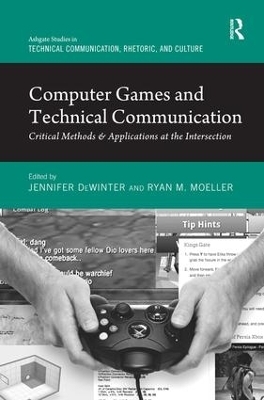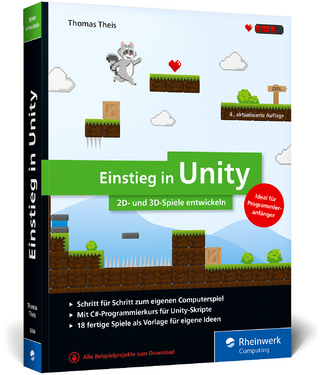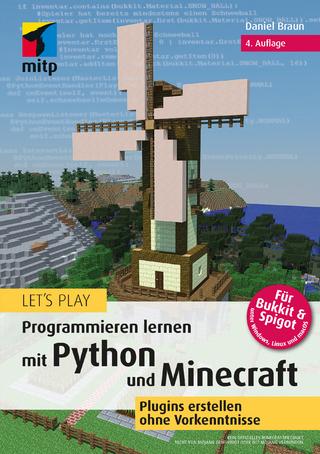
Computer Games and Technical Communication
Routledge (Verlag)
978-1-4724-2640-6 (ISBN)
Taking as its point of departure the fundamental observation that games are both technical and symbolic, this collection investigates the multiple intersections between the study of computer games and the discipline of technical and professional writing. Divided into five parts, Computer Games and Technical Communication engages with questions related to workplace communities and gamic simulations; industry documentation; manuals, gameplay, and ethics; training, testing, and number crunching; and the work of games and gamifying work. In that computer games rely on a complex combination of written, verbal, visual, algorithmic, audio, and kinesthetic means to convey information, technical and professional writing scholars are uniquely poised to investigate the intersection between the technical and symbolic aspects of the computer game complex. The contributors to this volume bring to bear the analytic tools of the field to interpret the roles of communication, production, and consumption in this increasingly ubiquitous technical and symbolic medium.
Jennifer deWinter is Assistant Professor of Rhetoric and associated faculty in the Interactive Media and Game Development program at Worcester Polytechnic Institute, USA, and Ryan M. Moeller is Associate Professor of English at Utah State University, USA.
Introduction; I: Connecting Professional and Technical Communication and Game Studies; 1: It's All Fun and Games Until Someone Pulls Out a Manual: Finding a Role for Technical Communicators in the Game Industry; 2: Come Out Playing: Computer Games and the Discursive Practices of Gender, Sex, and Sexuality 1; II: Industry Documentation and Procedural Guides; 3: Rendering Novelty Mundane: Technical Manuals in the Golden Age of Coin-Op Computer Games; 4: Just Playing Around: From Procedural Manuals to In-Game Training; 5: “It Wasn't Intended to be an Instruction Manual”: Revisiting Ethics of “Objective” Technical Communication in Gaming Manuals; III: Getting the Player Involved; 6: Game Design Documents: Changing Production Models, Changing Demands; 7: Developing a Testing Method for Dynamic Narrative; 8: Psyche and Eros: Rhetorics of Secrecy and Disclosure in Game Developer–Fan Relations; 9: Patching as Design Rhetoric: Tracing the Framing and Delivery of Iterative Content Documentation in Online Games; 10: “You Are How You Play”: Privacy Policies and Data Mining in Social Networking Games; 11: Working at Play: Modding, Revelation, and Transformation in the Technical Communication Classroom; IV: Games in the Professional and Technical Communication Classroom; 12: Inhabiting Professional Writing: Exploring Rhetoric, Play, and Community in Second Life; 13: How World of Warcraft Could Save Your Classroom: Teaching Technical Communication through the Social Practices of MMORPGs; 14: The Three D's of Procedural Literacy: Developing, Demonstrating, and Documenting Layered Literacies with Valve's Steam for Schools; 15: Questing through Class: Gamification in the Professional Writing Classroom; 16: From Realism to Reality: A Postmortem of a Game Design Project in a Client-Based Technical Communication Course
| Reihe/Serie | Routledge Studies in Technical Communication, Rhetoric, and Culture |
|---|---|
| Verlagsort | London |
| Sprache | englisch |
| Maße | 156 x 234 mm |
| Gewicht | 748 g |
| Themenwelt | Geisteswissenschaften ► Sprach- / Literaturwissenschaft ► Anglistik / Amerikanistik |
| Informatik ► Software Entwicklung ► Spieleprogrammierung | |
| Informatik ► Software Entwicklung ► User Interfaces (HCI) | |
| ISBN-10 | 1-4724-2640-1 / 1472426401 |
| ISBN-13 | 978-1-4724-2640-6 / 9781472426406 |
| Zustand | Neuware |
| Haben Sie eine Frage zum Produkt? |
aus dem Bereich


